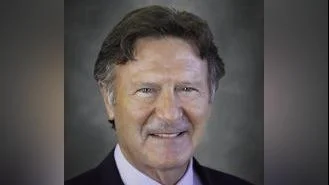Rep. Adam Niemerg | repniemerg.com
Rep. Adam Niemerg | repniemerg.com
State Rep. Adam Niemerg (R-Dieterich) is a noted opponent to ranked-choice voting which leftists are pushing in Illinois.
Niemerg underscored that “Ranked-choice voting goes against everything our electoral process represents," which he said, "has always been guided by the principle of One Person – One Vote.”
“The idea that we would ever count votes based on a ranking system is absurd because it makes it easier for unqualified people to get elected,” Niemerg told SE Illinois News. “The idea that someone’s second or third choice could win an election does not exactly instill confidence in our electoral process.”
He promised that if the measure “reaches the House floor for a vote," he will be voting ‘NO.’
"I have and will continue to oppose the efforts to turn our great country into a banana republic," Niemerg said. "We must be vigorous and steadfast in the defense of our liberty and way of life. Ranked-choice voting is a threat to our Republic, and I am actively working to defeat House Bill 2807.”
Bills under consideration are HB2807, which creates the system for presidential elections, and HB3749, which creates the system for municipal elections.
“Creates the Ranked Choice Voting for Presidential Primaries Act. Provides that any State-administered primary election for the President of the United States shall be conducted using ranked choice voting,” HB2807's synopsis reads.
It also “Sets forth provisions concerning form of ballot, tabulation, inactive ballots and undervotes, and ties for ranked choice voting." It will additionally provide "that at least 150 days before the date of the presidential primary election, the State committee of each political party that intends to use the State-administered presidential primary in its nomination process shall inform the State Board of Elections in writing of its intention." It will also dictate "that the State committee’s written notice shall indicate whether the party prefers tabulation to occur on a winner-take-all basis or on a proportional basis.”
Ranked-choice voting, also known as instant runoff voting, would create an open primary in which voters are allowed to rank the candidates in the order of favor. If no candidate received more than 50 percent of the vote as the first choice the vote then goes through rounds in which low-count vote-getters are eliminated until candidates are chosen based on their ranking in the balloting process.
Ballotpedia explains, “If a candidate wins a majority of first-preference votes, he or she is declared the winner." However, If none of the candidates win a majority of first-preference votes, "the candidate with the fewest first-preference votes is eliminated. First-preference votes cast for the failed candidate are eliminated, lifting the next-preference choices indicated on those ballots. A new tally is conducted to determine whether any candidate has won a majority of the adjusted votes."
The Illinois Opportunity Project’s Andy Bakker told WJBC the legislation will have a detrimental effect on the state’s election process. According to him ranked-choice voting is a strategy to "disconnect elections from issues and allows candidates with marginal support to win.”
The introduction of ranked-choice voting would require new voting systems throughout the state as well. Boone County Clerk Julie Bliss told legislators debating the bill in committee that expense and funding for the such voting process will be issues that are likely to be raised to them by all local election authorities, Capitol News Illinois reported. She warned that "the initial cost of implementing something like this is going to be higher.”




 Alerts Sign-up
Alerts Sign-up